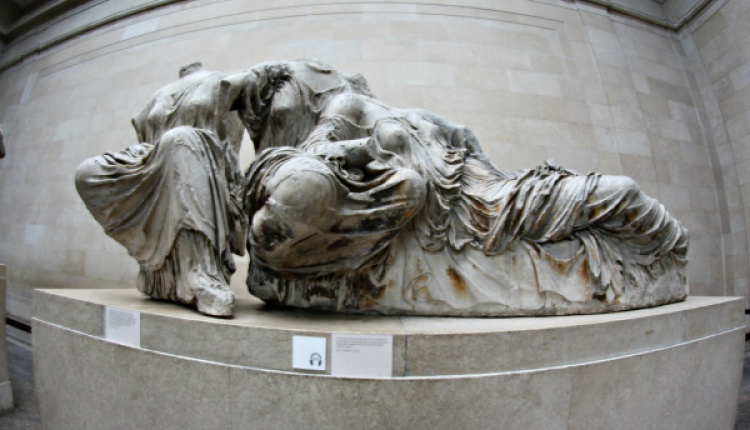Parthenon Marbles: The Times Submits Proposal To The British Museum
- by XpatAthens
- Thursday, 17 February 2022

In a recent article, the Times of London has reiterated its support for the Greek request for the reunification of the Parthenon sculptures.
The timing of the article coincides with the recent announcement that a UK-based research institute could reproduce the Marbles to the nearest millimeter using 3D printing technology, so the British Museum can exhibit the copies.
The proposal was recently put forward by Oxford University’s Institute of Digital Archeology, which has developed a robot “with a human touch,” as the newspaper describes, with the ability to create faithful copies of archeological monuments.
Speaking to the Times, Roger Michel, founder and executive director of the institute, said that if the British Museum did not give permission for the Greek sculptures to be photographed, “guerrilla” tactics could be used, potentially enlisting “an army of patriotic Greeks with 3D cameras to take the images.”
Mr. Michel explained that once the three-dimensional scans are taken, the institute can create a highly detailed 3D model of the sculptures. This is then uploaded into a carving robot, with the ability to reproduce the sculptures in stone to the nearest millimeter. “It looks like something out of the first Terminator movie, but the delicacy of the carving is just extraordinary. It’s as good as anything a human sculptor can do,” says Michel.
The Times article states that the British Museum should “embrace” this latest technological opportunity.
“The marbles should be returned to Greece, where they can be exhibited at the magnificent Acropolis Museum in Athens. The British Museum should agree to exhibit the 3D copies. In return, Greece could pledge not to allow more copies to be made. In this way, the Greeks can regain their cultural heritage and the British Museum can maintain its status as the most important historical collection in the world,” the Times article concludes.
Originally published on: greece-is.com
The timing of the article coincides with the recent announcement that a UK-based research institute could reproduce the Marbles to the nearest millimeter using 3D printing technology, so the British Museum can exhibit the copies.
The proposal was recently put forward by Oxford University’s Institute of Digital Archeology, which has developed a robot “with a human touch,” as the newspaper describes, with the ability to create faithful copies of archeological monuments.
Speaking to the Times, Roger Michel, founder and executive director of the institute, said that if the British Museum did not give permission for the Greek sculptures to be photographed, “guerrilla” tactics could be used, potentially enlisting “an army of patriotic Greeks with 3D cameras to take the images.”
Mr. Michel explained that once the three-dimensional scans are taken, the institute can create a highly detailed 3D model of the sculptures. This is then uploaded into a carving robot, with the ability to reproduce the sculptures in stone to the nearest millimeter. “It looks like something out of the first Terminator movie, but the delicacy of the carving is just extraordinary. It’s as good as anything a human sculptor can do,” says Michel.
The Times article states that the British Museum should “embrace” this latest technological opportunity.
“The marbles should be returned to Greece, where they can be exhibited at the magnificent Acropolis Museum in Athens. The British Museum should agree to exhibit the 3D copies. In return, Greece could pledge not to allow more copies to be made. In this way, the Greeks can regain their cultural heritage and the British Museum can maintain its status as the most important historical collection in the world,” the Times article concludes.
Originally published on: greece-is.com
